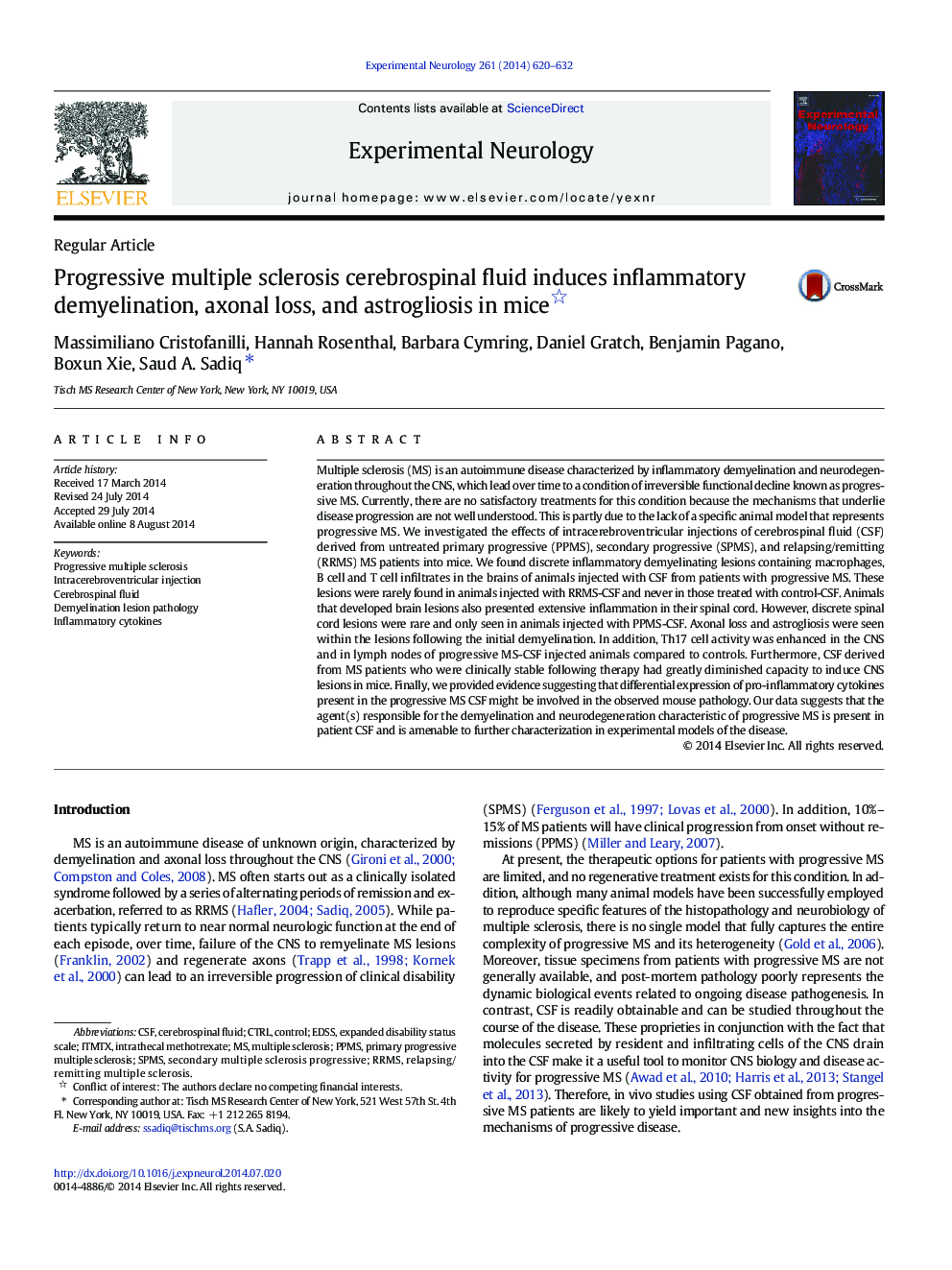| Article ID | Journal | Published Year | Pages | File Type |
|---|---|---|---|---|
| 6017688 | Experimental Neurology | 2014 | 13 Pages |
â¢A novel mouse model for progressive multiple sclerosis is proposed.â¢Progressive MS patient CSF caused inflammatory demyelination in the murine CNS.â¢Th17 cells were involved in the observed CNS lesion pathology.â¢CSF-induced brain lesions are drastically reduced by clinical treatment.â¢MS patient cytokines mediate murine lesion formation.
Multiple sclerosis (MS) is an autoimmune disease characterized by inflammatory demyelination and neurodegeneration throughout the CNS, which lead over time to a condition of irreversible functional decline known as progressive MS. Currently, there are no satisfactory treatments for this condition because the mechanisms that underlie disease progression are not well understood. This is partly due to the lack of a specific animal model that represents progressive MS. We investigated the effects of intracerebroventricular injections of cerebrospinal fluid (CSF) derived from untreated primary progressive (PPMS), secondary progressive (SPMS), and relapsing/remitting (RRMS) MS patients into mice. We found discrete inflammatory demyelinating lesions containing macrophages, B cell and T cell infiltrates in the brains of animals injected with CSF from patients with progressive MS. These lesions were rarely found in animals injected with RRMS-CSF and never in those treated with control-CSF. Animals that developed brain lesions also presented extensive inflammation in their spinal cord. However, discrete spinal cord lesions were rare and only seen in animals injected with PPMS-CSF. Axonal loss and astrogliosis were seen within the lesions following the initial demyelination. In addition, Th17 cell activity was enhanced in the CNS and in lymph nodes of progressive MS-CSF injected animals compared to controls. Furthermore, CSF derived from MS patients who were clinically stable following therapy had greatly diminished capacity to induce CNS lesions in mice. Finally, we provided evidence suggesting that differential expression of pro-inflammatory cytokines present in the progressive MS CSF might be involved in the observed mouse pathology. Our data suggests that the agent(s) responsible for the demyelination and neurodegeneration characteristic of progressive MS is present in patient CSF and is amenable to further characterization in experimental models of the disease.
